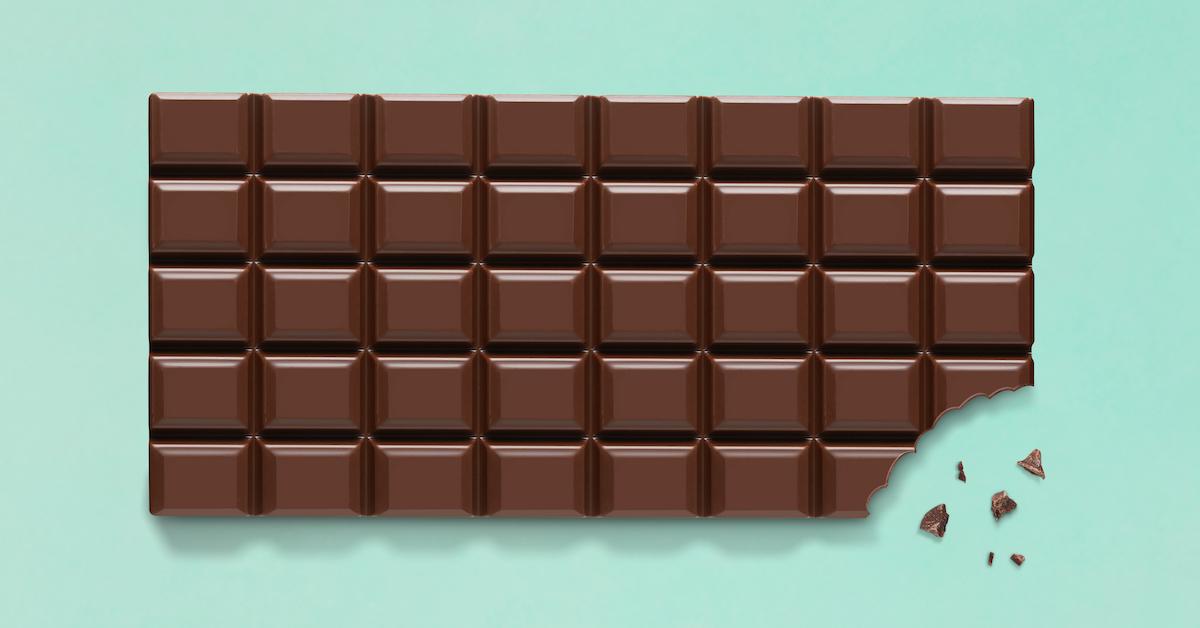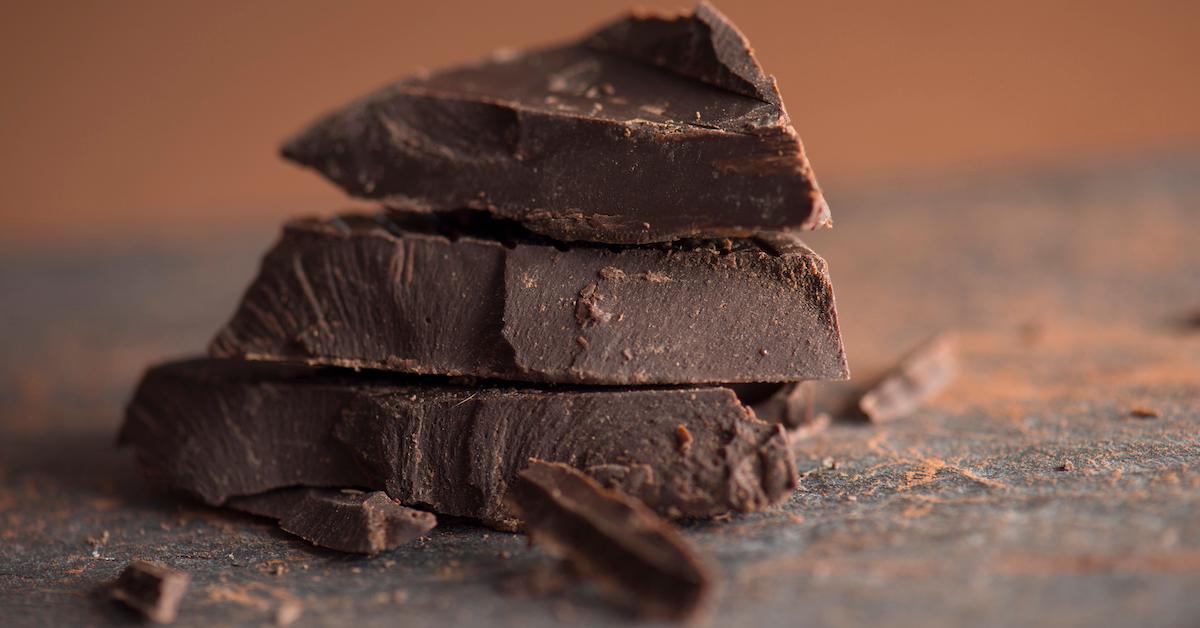Multi-Year Study Finds Heavy Metals in Dark Chocolate: What You Should Know
A 2024 study revealed that 43 percent of dark chocolate products tested had exceeded acceptable levels of lead contamination.
Updated Aug. 1 2024, 9:54 a.m. ET

If you're a fan of dark chocolate, you’ve probably come across articles or studies about the health benefits of the delicious dessert, leading you to feeling triumphant and vindicated about your favorite sweet treat. Well sadly, the latest news on dark chocolate may have you feeling a bit worried, as new research has found heavy metals in dark chocolate.
For all the details, including where the dark chocolate was purchased, which brands are affected, which heavy metals were found in the dark chocolate tested, and if you need to worry about this, keep reading.

A multi-year study finds that dark chocolate contains high levels of lead and cadmium.
On July 30, 2024, a multi-year study found that of 72 dark chocolate products sold at popular stores such as Amazon or Whole Foods, 43 percent exceeded acceptable levels of lead contamination as determined by California law, while 35 percent exceeded acceptable levels of cadmium, per the Guardian.
The study, which was conducted by researchers with George Washington University and published in the journal Frontiers, took place from 2014 to 2022.
The results of the study indicate that the average person is likely not at risk, but there is some concern if you are consuming more than one serving of a contaminated product per day.
"...[H]eavy metal contamination—in more than half of products tested—may not pose any appreciable risk for the average person when consumed as a single serving; however, consuming some of the products tested, or more than one serving per day in combination with non-cocoa derived sources heavy metals, may add up to exposure that would exceed the Prop 65 MADLs," the study reads.
Researchers also wrote, "Notably, “organic” products were significantly more likely to demonstrate higher levels of both Cd and Pb."

Heavy metals were found in dark chocolate made by Hershey's, Trader Joe's, and other brands.
On Dec. 15, 2022, Consumer Reports (CR) scientists released a report analyzing heavy metals in 28 different dark chocolate bars. They decided to conduct this research in response to the George Washington University study, which had been underway.
After conducting the testing, the CR researchers found both cadmium and lead in all 28 bars, which are made by a variety of different brands.
They then organized all 28 bars into a list based on their lead and cadmium content, using California's maximum allowable dose level (MADL) for lead (0.5 micrograms) and cadmium (4.1 micrograms). CR believed California’s MADL was the most protective methodology available.
Which dark chocolate bars contain heavy metals?
CR determined that these eight dark chocolate bars were high in cadmium, but not lead:
- Beyond Good Organic Pure Dark Chocolate, 70% Cocoa
- Beyond Good Organic Pure Dark Chocolate, 80% Cocoa
- Equal Exchange Organic Extra Dark Chocolate, 80% Cacao
- Lindt Excellence Dark Chocolate, 70% Cocoa
- Scharffen Berger Extra Dark Chocolate, 82% Cacao
- Alter Eco Organic Dark Chocolate Classic Blackout, 85% Cacao
- Pascha Organic Very Dark Dark Chocolate, 85% Cacao
- Dove Promises Deeper Dark Chocolate, 70% Cacao
These 10 dark chocolate bars were high in lead, but not cadmium:
- Tony's Chocolonely Dark Chocolate, 70% Cocoa
- Lily's Extra Dark Chocolate, 70% Cocoa
- Godiva Signature Dark Chocolate, 72% Cacao
- Chocolove Strong Dark Chocolate, 70% Cocoa
- Lindt Excellence Dark Chocolate, 85% Cocoa
- Endangered Species Bold + Silky Dark Chocolate, 72% Cocoa
- Trader Joe's Dark Chocolate, 72% Cacao
- Hu Organic Simple Dark Chocolate, 70% Cacao
- Chocolove Extreme Dark Chocolate, 88% Cocoa
- Hershey's Special Dark Mildly Sweet Chocolate
And finally, the researchers detected high levels of both lead and cadmium in these remaining five dark chocolate bars:
- Theo Organic Pure Dark, 70% Cocoa
- Trader Joe's The Dark Chocolate Lover's Chocolate, 85% Cacao
- Theo Organic Extra Dark Pure Dark Chocolate, 85% Cocoa
- Lily's Extremely Dark Chocolate, 85% Cocoa
- Green & Black's Organic Dark Chocolate, 70% Cacao
Dark chocolate without lead and cadmium:
As per CR, these five dark chocolate bars represented the “safer choices,” since they had the lowest lead and cadmium concentrations:
- Mast Organic Dark Chocolate, 80% Cocoa
- Taza Chocolate Organic Deliciously Dark Chocolate, 70% Cacao
- Ghirardelli Intense Dark Chocolate, 86% Cacao
- Ghirardelli Intense Dark Chocolate Twilight Delight, 72% Cacao
- Valrhona Abinao Dark Chocolate, 85% Cacao
That said, these options do still contain some lead and cadmium. For more suggestions of chocolates without lead and cadmium, check out this guide from ConsumerLab.com.
How do lead and cadmium get into chocolate?
Cadmium primarily gets into dark chocolate via the soil that cacao trees are grown in, as per research published in February 2022.
On the contrary, lead typically contaminates dark chocolate after the cacao beans are picked, via lead-filled dirt and dust collecting on the beans as they dry in the sun, as per CR.

Excessive lead and cadmium exposure poses several health risks — but most people need not stop eating chocolate.
What about lead and cadmium can be potentially harmful? Well, according to the Centers for Disease Control and Prevention (CDC), exposure to significant levels of lead can lead to a number of serious issues, including anemia, weakness, kidney damage, brain damage, and even death, when lead levels are extremely high. For pregnant people, the risks associated with lead exposure is even higher, since lead can go through the and damage a developing baby’s nervous system.
Significant exposure to cadmium (which typically happens via occupational exposure) can actually cause cancer, flu-like symptoms, lung damage, and disease of the kidneys, bones, and lungs, according to the U.S. Department of Labor’s Occupational Safety and Health Administration.
Fortunately, there’s no reason to renounce your taste for dark chocolate. Both the Frontiers study and CR recommend “choosing your dark chocolates wisely” — perhaps that means eating ones that were found to have lower levels of heavy metals.
Toxicologist Michael J. DiBartolomeis, PhD, who has also done research on this topic, agrees; however, he told CR that he does warn children and pregnant people that they should stay away from dark chocolate.
This article, originally published on Dec. 16, 2022, has been updated.